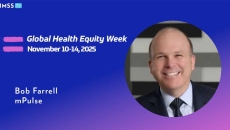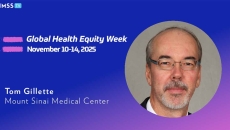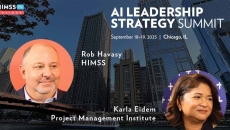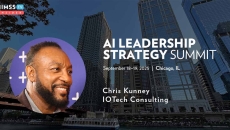Artificial Intelligence
Expected drop in next year’s star ratings will be due to the health equity index that includes social risk factors in CMS calculations.
Machine learning and AI can be leveraged for patient personalization to gain trust, especially in underserved populations, which helps close care gaps, says Bob Farrell, CEO of mPulse.
AHA has “substantial concerns” over the vendor payment structure in WISEeR that incentivizes denials at the expense of physician judgment.
In addition to language translation, AI plays an important role in interpreting labs and imaging results into plain language for patients to understand, says Tom Gillette, CIO of Mount Sinai Medical Center in Miami Beach.
The intent is to improve documentation accuracy, reduce administrative burden and free up time for patient care.
The National Conference of State Legislatures' Sarah Jaromin talks about how its public databases track every state's AI legislation, helping lawmakers stay informed as states debate ethical healthcare AI deployment.
For AI adoption, healthcare board members need to be users of AI, they need to determine the organization’s risk tolerance and there should be strategic alignment with the system’s mission, says Edward Marx, CEO of Marx Advisory.
Just as the FDA approves medical devices, there needs to be a pathway and a reviewing board to verify whether an AI model is credible, says Pluto CEO.
Meeting budgets and deadlines may not reflect the scalability and viability of AI projects, according to HIMSS' Rob Havasy and PMI's Karla Eidem; leaders must align stakeholders, own outcomes and adapt quickly.
The Chief AI Officer is the latest link between IT and clinical care, as CMIOs were needed 20 years ago during the push to EHR adoption, says Christopher Kunney, a partner at IOTech Consulting.









